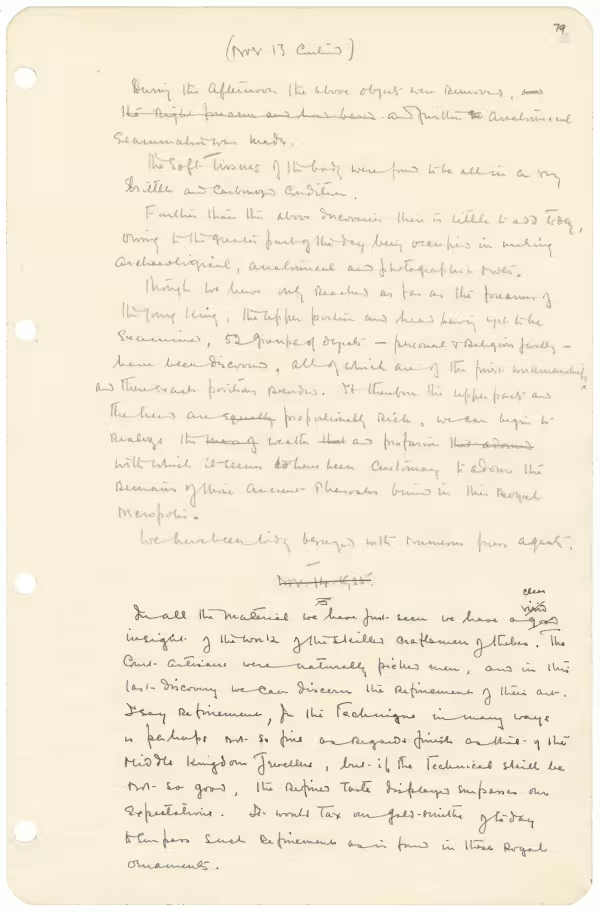TAA i.2.3.79

© Griffith Institute,
University of Oxford
(Nov. 13 Continued)
During the afternoon the above objects were removed, and
the right forearm and hand braced - and further ex Anatomical
Examination was made.
The soft tissues of the body were found to be all in a very
brittle and carbonized condition.
Further than the above discoveries there is little to add today,
owing to the greater part of the day being occupied in making
archaeological, anatomical and photographic notes.
Though we have only reached as far as the forearms of
the young King, the upper portion and head having yet to be
examined, 52 groups of objects - personal & religious jewellery -
have been discovered, all of which are of the finest workmanship
and their exact positions recorded. If therefore the upper parts and
the head are equally proportionally rich, we can begin to
realize the mass of wealth that and profusion that adorned
with which it seems to have been customary to adorn the
remains of these ancient pharaohs buried in this Royal
Necropolis.
We have been today besieged with numerous press agents.
Nov. 14. 1925.
In all the material we have just seen we have a good <vivid> <clear>
insight of the work of the skilled craftsmen of Thebes. The
court artisans were naturally picked men, and in this
last discovery we can discern the refinement of their art.
I say refinement, for the technique in many ways
is perhaps not so fine as regards finish as that of the
Middle Kingdom jewellers, but if the technical skill be
not so good, the refined taste displayed surpasses our
expectations. It would tax our gold-smiths of today
to surpass such refinement as is found in these Royal
Ornaments.